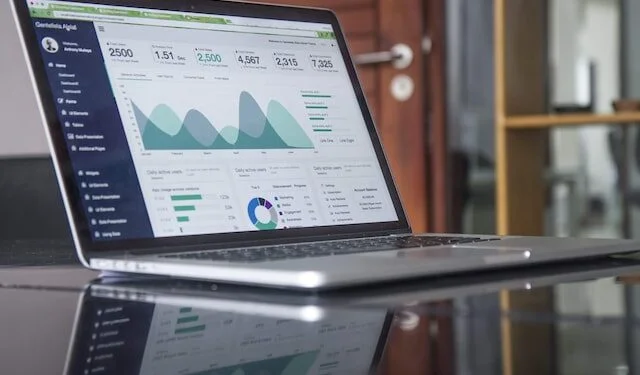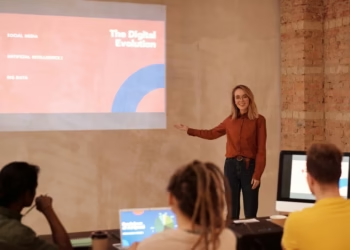
The Dos: — Start slowly by getting the low-hanging fruit: getting your business listed on business directories, and voucher websites, posting on industry forums and creating job listings.
Get high-authority sites that are relevant to your business. Check the quality of links using free versions of tools such as semrush, ahrefs and Moz.
Spend time scouring sources like HARO, Source Bottle and Terkel and give high-quality answers for topics relevant to your niche. Overall, you are looking for sites that fit your same geography and same niche.
At times when getting a link from an article you should concentrate more on traffic than DA. Check if the article has views and comments indicating that it is a real article that has real value and link juice. If it has many visitors then it has link juice.
Look at the number of links out from the article as they are considered holes in the bucket. Too many holes will decrease the value of your backlink you get.
Make sure your link profile looks natural. The anchor text you choose should lead to your landing page and other pages on your website so it looks natural.
Create relevant, strong and focused content that gets natural links. Provide definitive, authoritative answers to top questions asked in your niche. For example, we wrote about how much it costs to hire a cleaner which is one of the top questions asked in our niche. We spent time researching the topic and provided a definitive answer that ended up ranking highly and now we have many sources linking to that article.
The Don’ts — Don’t create poor-quality backlinks and links to pages that cover topics unrelated to your niche. This will end up hurting you and negatively impacting your website’s overall authority.
Don’t overestimate the value of the number of backlinks over the value of the quality.
Don’t overuse exact word anchor texts as this will raise a red flag with google and you might even get penalised for it. Instead, look for a variety of relevant and matching phrases to link.
Avoid PBNs and toxic links, because a manual penalty from google is very difficult to reverse.
Don’t waste a lot of time doing outreach and looking for websites to get backlinks from. You are better off spending time answering journalist requests.
Don’t do too many link exchanges as it will become transparent to Google and you will get penalised for it. It is best to do this if you have a secondary website where you insert their link while getting a backlink from them to your primary website.

Business owners should use backlinking cautiously as it can be a powerful tool for boosting search engine rankings.
One of the best ways to do it is through guest posting. In fact, I was able to grow Webris by guest posting on other websites.
Guest posting involves writing content for another website and getting a backlink in return. This is an effective way to get high-quality backlinks as long as the website you are guest blogging on is reputable and has authority.
You can find guest posting opportunities by searching for websites in your industry and looking for contact pages. You can also search Google for “guest post guidelines” or “write for us”.
When you are still starting, don’t be afraid to reach out to websites that may not be in your industry as well. The more backlinks you can get, the higher chance you have of getting your website noticed and ranked.

If you’re a business owner with a website, you probably want to generate some backlinks for your website. But you may be wondering where you should start. The first thing you should do is check to see if there are any broken links on your website. Broken links are something that your website visitors may not even notice, but they are a big problem for search engine optimization.
If you find any broken links on your website, you should correct them as soon as possible. Once you’ve taken care of any broken links on your own website, you can start looking for other opportunities to generate backlinks for your business. One great way to do this is to reach out to other business owners in your area and offer to write a guest blog for their website. By taking care of any broken links on your own website and finding opportunities to generate new backlinks, you can help ensure that your website is as optimized as possible.
Link-building is a process that should be handled delicately. You don’t want to be too pushy with your site and end up getting penalized. That’s why it’s important to do your research and follow the do’s and don’ts of building links.
First, determine where your target audience hangs out online. Then, reach out to those people to offer a guest post or be interviewed for your site. Additionally, conduct keyword research to determine where you can build links.
For example, if you have a blog about travel, you could partner with another travel blog to link back to each other’s sites.
Finally, build links slowly. Don’t build too many links too quickly, as this can look spammy to search engines. Instead, build links at least three times a week over the long term. By following these do’s and don’ts, you’ll be able to build links for your site without getting penalized.
The most common mistake people make when trying to gain backlinks is to use automated tools. These tools are usually not very effective and can get your site banned from the search results. Another mistake is to use low-quality sites to gain links. This will not help your rankings and may even hurt them. Instead, focus on building relationships with potential linking partners and choose sites that are relevant and high-quality.

An excellent way to gain high-quality backlinks that help improve your site’s domain authority is by using HARO and Terkel platforms.
HARO has a free tier that is more than enough for a small business and will give you access to journalist requests on some high DR sites, including GoBankingRates, Yahoo, and Forbes.
On the other hand, Terkel is a paid platform specifically designed for link-building. It is highly recommended for small websites that are just starting and want to build authority with fellow smaller sites and more established ones in their niche.
When using these two platforms, focus on sharing valuable insights that help you build relationships with journalists, increasing the likelihood of being linked. Moreover, offer to share a link to the post once published to get more consideration.
The key thing to avoid is the temptation to answer any and all queries journalists send out. C Casting the net wide will only help get you blacklisted and not land any links.
Have a PR team that shares your insights with different journalists and enables your site to get links while establishing authority as a go-to source for reliable information and insights in your industry.

Do’s;
- Create high-quality, original, and relevant content that people want to link to.
- Reach out to relevant websites and offer to share your content with them in exchange for a link.
- Write guest posts for other websites in your niche, including a link back to your own site.
- Collaborate with influencers in your niche and co-create content that you both can promote and link to.
- Offer testimonials for products or services you use, including a link to your website.
- Participate in forums and discussion boards relevant to your niche and include a link to your website in your signature or profile.
- Use anchor text that accurately describes the content you’re linking to.
- Build relationships with other websites and influencers in your niche.
Don’ts;
- Don’t buy links or participate in link schemes, as these can result in penalties from search engines.
- Don’t use exact match anchor text excessively, as this can appear spammy and manipulative to search engines.
- Don’t link to low-quality, irrelevant or spammy websites, as this can negatively impact your own website’s reputation.
- Don’t engage in link-exchange programs, as these can be seen as manipulative by search engines.
- Don’t use automated link-building tools, as these can result in low-quality and irrelevant links.

Backlinks are an important aspect of search engine optimization (SEO). The right way to gain backlinks is to focus on creating high-quality and valuable content that others will want to link to, such as informative blog posts, engaging videos, or visually appealing infographics.
Building relationships with other websites and asking for a link can also be effective. Gaining the help of a dedicated professional will help, but it can become costly. That said, the quick wins are to ensure his business is listed on all the major platforms. Start with BBB and move up.
It’s important to avoid unethical practices such as buying links or participating in link schemes, as these can negatively affect your website’s reputation and ranking. In addition, business owners should also be careful to avoid common mistakes in building links, such as using irrelevant or low-quality websites for backlinks, relying too heavily on exact match anchor text, and neglecting to diversify the types of links pointing to their websites.
By focusing on creating high-quality content and building genuine relationships with other websites, business owners can gain backlinks the right way and improve their website’s visibility and ranking. With an emphasis that business owners who have an agency or consultant by their side tend to win over those who don’t and take these tasks upon themselves.

Backlinks DO matter, but they need to be the right ones for your business. The Google link spam update has made that very clear.
Crucial mistakes people should avoid
Dodgy tactics like article syndication across PBN networks producing toxic links. Google is all over that, and websites that have used this SEO tactic have had their rankings drop dramatically.
Poor outreach methods. Backlinking should be beneficial to both parties involved, so you need to emphasise the value when reaching out.
Backlinks Don’ts
Don’t get backlinks on websites that are unrelated to your business (a backlink on a car dealer website for a confectionery brand), unless they have a very high domain authority (such as Forbes).
Don’t link to low-quality content
Backlinks Dos
Monitoring your backlink profile and auditing regularly should be a key part of your SEO strategy.
Focusing on strategic content partnerships so you can acquire natural links that make sense for your business.

One of the best ways to build backlinks is by utilizing Help A Reporter Out (HARO). HARO is a free platform that connects journalists and bloggers to sources within their industry. Business owners can use this platform by offering expert advice or information in response to reporters’ inquiries. This is a great way to get your business into the spotlight, as well as build backlinks from reputable publications.
Another great way for business owners to gain backlinks is by writing guest posts for related blogs. When you write a guest post, make sure to include an author bio at the end of your post that includes a link to your website. This will allow readers to easily find and visit your site, as well as generate referral traffic from the blog.
When it comes to building backlinks the right way, there are some do’s and don’ts you should keep in mind. First of all, always make sure that your links are relevant and coming from high-quality sources. You should also focus on developing relationships with others in your industry who can help you get backlinks from their websites. Finally, make sure to stay away from link farms and other shady tactics that can get you into trouble with search engine algorithms.
Some of the most common mistakes people make when building backlinks include using automated software or buying links. Not only are these practices unethical, but they can lead to penalties from Google or other search engines for violating their guidelines. Additionally, avoid posting irrelevant links or “spam” links on websites as this can also result in penalties.

Best practices to gain backlinks:
- Creating high-quality and original content that people want to link to: For example, writing in-depth research articles, case studies, and white papers that offer valuable insights and information to your target audience.
- Building relationships with other websites and influencers in your industry: For example, reaching out to other bloggers and website owners in your niche and offering to collaborate on a project, guest post on each other’s sites, or share each other’s content.
- Making use of infographics, videos, and other multimedia content that can be easily shared and linked to: For example, creating an infographic that summarizes important data and statistics related to your industry and promoting it on social media and other websites.
Worst practices to avoid:
- Buying links or participating in link exchange schemes: For example, paying for links or exchanging links with other websites without providing any real value to users.
- Spamming websites and forums with low-quality links and content: For example, leaving irrelevant or low-quality comments on other websites with links back to your own site.
- Using keyword-rich anchor text for all of your links: For example, using the same exact keyword-rich anchor text for all of your backlinks, which can be seen as manipulative and can negatively impact your website’s search engine ranking.
- Automatically generating large numbers of low-quality links: For example, using automated software to generate hundreds or thousands of low-quality links in a short period of time.
- Linking to irrelevant or low-quality websites: For example, linking to websites that are known to be spammy, contain malware, or are otherwise low quality, as this can harm your own website’s reputation and lower its search engine ranking.

Author
-

Russ Turner
Founder & Editor at GallantCEO.com | Media enquiries, Guest Posting, and Interviews please contact via LinkedIn.
"Elevate Your Brand with an Exclusive Feature Interview!"























